Screenshot of Tuesday’s Humboldt County Board of Supervisors meeting.
###
Following two hours of tense deliberation and emotional public commentary from local veterans, the Humboldt County Board of Supervisors voted 4-1, with Third District Supervisor Mike Wilson dissenting, to approve long-awaited design plans for a new veterans hall in Garberville.
The John Haynes Memorial Veterans Hall, which also housed the Southern Humboldt branch of the county courthouse, was shuttered in May of 2016 after county inspectors found black mold growing in the walls and ceiling, along with other structural issues, following years of deferred maintenance. The building sat for years before, in June of 2021, the Board of Supervisors voted to demolish and reconstruct a slightly smaller version of the original building.
The board entered into a contract with Medford-based architectural firm ORW Architecture, Inc. to design a new veteran’s hall. Speaking at this week’s meeting, Sean Meehan, the county’s deputy director of facilities management, informed the board that costs have increased “significantly” since the plans were initially approved in 2021. At that time, demolition and construction costs were estimated at $3.08 million. The original design would require another $3.57 million in additional funding.
“We immediately set to work with the design team on ways that we could modify the design, reduce the cost significantly but not impact the quality substantially,” Meehan said. ORW got to work on another, less complex design – as seen below – that reduced the footprint of the building by 220 square feet and cut the price tag by about $1.2 million. “One of the biggest cost-saving techniques that we used [in the second design] is a great simplification of the roof structure … the overall building is about six- to six-and-a-half feet lower than the previous building. There’s just less material overall.”
Original rendering. Image: ORW Architecture, Inc.
Revised rendering. Image: ORW Architecture, Inc.
Following staff’s presentation, Second District Supervisor Michelle Bushnell asked where the additional funding would come from. County Administrative Officer Elishia Hayes said the county’s finance plan would be the “best funding source” for the project, but said most of the funds are already spoken for.
“We are currently under the 2020 Finance Plan, and that is by and large already committed,” Hayes continued. Most of that funding was set aside for the county’s jail expansion and rehabilitation project, but the plan was scrapped a few months ago due to funding constraints. “That does relieve some capacity but … we did repurpose some of those for projects that were needed in the jail. … That leaves approximately $1.4 million [that is] still available.”
Staff is working on a 2024 Finance Plan that could potentially provide funding for the new veteran’s hall. However, Hayes noted that there are “a lot of infrastructure projects on the table for the county” that would pull from the same pot of funds.
“We’ve procured a number of properties and are diligently working on … our Facilities Master Plan and starting to get some big things underway,” she said. “That is our biggest and most fruitful funding mechanism to move those things forward.”
Bushnell acknowledged the county’s “financial dilemma” but spoke in favor of the original, more expensive design preferred by veterans.
“I’m not passing blame, but had we taken care of the facility we had – which is a problem we have in all of our [county] facilities – we wouldn’t be here at this point,” she said. “[The veterans] would have their original hall – which is what they wanted, they didn’t want a new hall – and now they have nothing. I really hope that this board can be supportive [of this project]. I know that, you know, our budgets are not great, but there is money in the finance plan that we can allocate to this, and already did in 2021.”
Bushnell also asked when construction would begin. Meehan said it would depend on which option the board selected, noting that option one “is the most developed” and would allow for “the quickest turnaround.”
“I don’t think it would take a huge amount of time and effort and cost to get option two to that same level,” he continued. “I think it would be … an extra month or two to get option two to where option one is.”
Looking past specific design criteria, First District Supervisor and Board Chair Rex Bohn urged staff to set up an arrangement with Southern Humboldt veterans that would allow them to work on the building as needed to avoid a repeat of the current situation.
“I think what we need to do is allow the veterans to do some of this work, rather than holding a fist and say[ing], ‘nope, we have to do that work’ and then we don’t do it,” he said. “I think they understand the constraints, [but] I think what we have to do is we have to change the way we do business on these things … especially if we’re looking at $7 million, here. It’s gonna be over $7 million by the time we’re done because construction costs are still going up.”
Fourth District Supervisor Natalie Arroyo, a veteran of the U.S. Coast Guard, acknowledged the longstanding issues surrounding the Garberville Veteran’s Hall but, like Hayes, noted that many county facilities need attention.
“We also are in a position of trying to get county buildings and facilities serviceable for more of our own employees to work in so that we can stem the flow of funds to extremely expensive leases and lease agreements … that are ultimately costing folks in the community, you know, through the county a lot of money,” she said. “[E]very single county office you go to has facilities needs in the queue. It’s, it’s just a lot. It’s sobering.”
Bushnell thanked Arroyo for her comments but pushed back, asserting that it is “the responsibility of this county to provide them [with] a facility … .”
“I know the money’s very tight and that we were in a terrible crunch, but if we kick this can down the road again it’s not going to be cheaper next year or the year after,” Bushnell continued. “I’m fearful that they’ll never get their facility, and that’s not okay in my book and it shouldn’t be okay in your books.”
Third District Supervisor Mike Wilson noted the “trajectory of vacancies” in Southern Humboldt and asked if staff had looked into buying a vacant commercial space rather than building something brand new.
“I have a concern that we’re moving forward with building a new structure in an area where we’re already seeing structures that aren’t being used enough to sustain their life or in that community,” Wilson said. “I’m just having some anguish about that. … I mean, I went to the original [vets hall] as a kid … and all the cool stuff that happened there, that’s real and should happen again. … We’re just in this spot with our budget [and] we’re hitting a wall.”
Wilson asked how much the project would cost the county on an annual basis. At an estimated five percent interest rate, Hayes said the county would make an annual payment of $340,000 - $380,000. “Over the life of a 30-year amortized loan, that would … significantly increase the cost overall,” she said. “It would double it by the time we paid the interest over a 30-year time period.”
“Can you say that number out loud? What is that doubling number?” Wilson asked.
“Well, for option one – making an assumption of a 5 percent interest rate – it would be roughly $11.6 million,” Hayes said. “Option two [would be] $10.2 million.”
Fifth District Supervisor Steve Madrone expressed some of the same concerns as Wilson and Arroyo, adding that county facilities are “in really horrible shape” with “tiles falling out of the ceiling on the desks, literally as we speak.”
“We’re gonna have to start laying off staff, that means less road crews, less social service employees and all kinds of things,” he continued. “If we put too many eggs in this basket, we [will create] the very same thing that created this situation, and that’s not a solution. That’s not helping out by putting too much money into something that then causes all of our other facilities to fall into further disrepair.”
The board floated a few other ideas that could bring in additional funding, including contacting Congressman Jared Huffman’s Office and prospective donors for support. Madrone suggested that the county look into “modular” building strategies that would give staff more time to hunt down potential revenue streams.
During public comment, more than a dozen veterans and supportive community members urged the board to move forward with one of the designs, ideally the original plan. Many of the speakers criticized the county for failing to address longstanding issues at the old building, which led to this whole mess. Some said the vets hall served as “a home away from home.”
“When I lost my hall eight years ago, it felt like I lost my home,” said Tom Pietila, a former commander of the Garberville VFW. “Please, do not delay like you did before.”
Doug Battles, another former commander of the Garberville VFW, noted that war has persisted internationally since the veteran’s hall was shuttered eight years ago. In that time, many young veterans have returned home with no place to go. “There is no community left, except for the older guys,” he said. “Are you going to go into a meeting at a senior citizen’s center in order to help your community? I mean, these young guys are not going to come in and do that stuff.”
Battles criticized the county for “kicking the can” and failing to contact elected officials like Huffman. “It’s been eight years, why didn’t you reach out before?” he asked. “I wrote to Huffman last night in an email. Boom, done. He knows the problem. Did you guys think about doing that?”
The criticism went on for about a half hour, with some people shaming the board for failing to take action and one commenter saying he felt “sick to [his] stomach” over the whole ordeal. Many speakers were understanding of the county’s budgetary woes but ultimately felt the county owed veterans a new facility.
Following public comment, Bushnell made a motion to approve the original design plan, which was seconded by Arroyo. The board deliberated for another half hour, discussing funding alternatives and other ways to save money on the project. Bushnell added an amendment to the motion that directed to contact state and federal representatives for potential grant funding. She said she would reach out to local folks as well.
The motion passed 4-1, with Wilson dissenting.
HCSO Services in Blue Lake
Earlier in the meeting, the board settled a contractual dispute between the Humboldt County Sheriff’s Office and the City of Blue Lake over the cost of law enforcement services. The item was pulled from the board’s consent calendar by Wilson, who expressed concern that the county was attempting to “claw back” money from the city.
“In the simplest terms, there was a contract for services [with] the sheriff for Blue Lake and … about a year-and-a-half ago, the sheriff made a request to the City of Blue Lake to adjust those charges,” Wilson explained. “There had been a negotiation … it was tense but they worked through it to negotiate the next contract. [Now], the sheriff is requesting to modify the existing contract so that there is a retroactive cost that goes back to the city. I disagree with that.”
Humboldt Sheriff William Honsal explained that the item before the board seeks to clarify language in staff’s recommendation that was approved with the original contract in May of 2024. Basically, the agenda item set a cap on the cost of law enforcement services that has “created some confusion” between HCSO and the city.
“We have a signed contract which gives us the ability to recalculate our costs every year if our costs go up,” he said. “We have that ability, within our signed contract … that gives us that ability to charge the real costs of providing professional services to Blue Lake. Where [the city] is pushing back is, in the original agenda item, there was basically a $327,000 cap that was going to be utilized for this contract, and that’s not the case.”
The contract was written to include a minimum charge for law enforcement services each year and allow HCSO to adjust that figure accordingly, Honsal explained. “Over the last three years, our costs have gone up dramatically. Liability insurance, the cost for a deputy raises, and just inflation in general.”
For example, around the time the contract was signed in 2022, HCSO informed the city that the cost of services had increased from $122,876 to $146,450 for the 2022-23 fiscal year, according to the staff report. The city did not dispute the charge at the time and the amount was paid in full.
However, in May of 2023, HCSO informed the city that the annual charge for services would increase from $146,450 to $315,656 in the 2023-24 fiscal year. “The [city] paid the first quarter in the amount of $78,914, and subsequently appealed the annual amount,” the staff report states. “In good faith, HCSO has met with the [city] and has negotiated changes to the calculation methodology resulting in the amount being recalculated to $190,685.”
That adjusted rate means the city owes HCSO roughly $45,000 in retroactive payments, according to the staff report.
Speaking before the board, City Manager Amanda Mager disputed the additional charge and called HCSO’s methodology into question.
“It’s $45,000 that the City of Blue Lake doesn’t really have [because] it wasn’t something we budgeted for. It wasn’t something that we even knew coming down the pike,” Mager said. “I think at this point, we’ve probably all expensed more than $45,000 in staff time, review, anxiety and stress in our communities. It would just be nice to move forward … with a clean new contract.”
Speaking during public comment, Blue Lake City Councilmember Elise Scafani, noting that she was not speaking on behalf of the council, said she felt as though the city “was granted absolutely everything we asked for” during its negotiations with HCSO. She noted that Blue Lake pays less for law enforcement services, per capita, than any other municipality in the county. On top of that, she said the city had a budget surplus last year, so there was money available.
“What I can’t understand is why we’re not willing to pay for the service for the current fiscal year,” she said. “I feel that the city has the money [and] that the city was aware of the process. … The sheriff invited the city to talks over and over and over again, and those talks didn’t happen until January. I feel that the city is just simply in a position where we need to say, ‘Hey, we got everything we needed out of these talks, and it’s just time to write the check and move forward.’”
During board deliberations, Wilson said he felt HCSO should have addressed the monetary dispute with the city early on. Bohn suggested they meet the city in the middle and charge $162,000 rather than $190,000, which Wilson said he would support.
However, Honsal said negotiations were no longer on the table.
Bushnell agreed and made a motion to approve staff’s recommendation to amend the old staff report and charge the city $45,000 in retroactive payments. The action was seconded by Arroyo and passed 4-1, with Wilson dissenting.
###
Check out yesterday’s meeting coverage here.
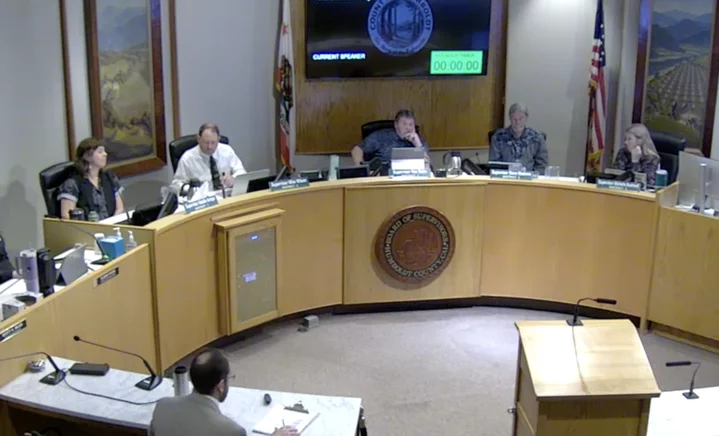
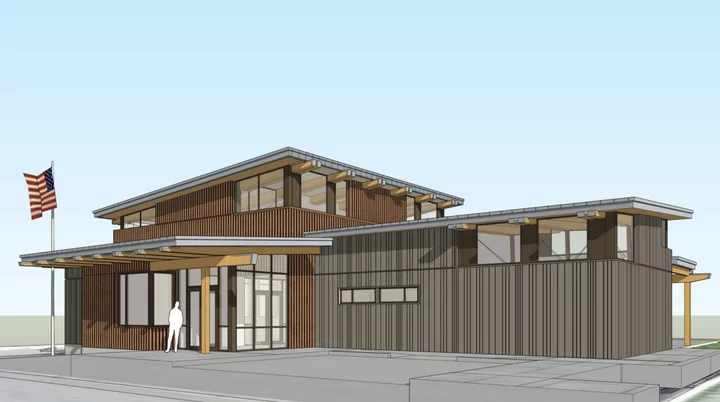
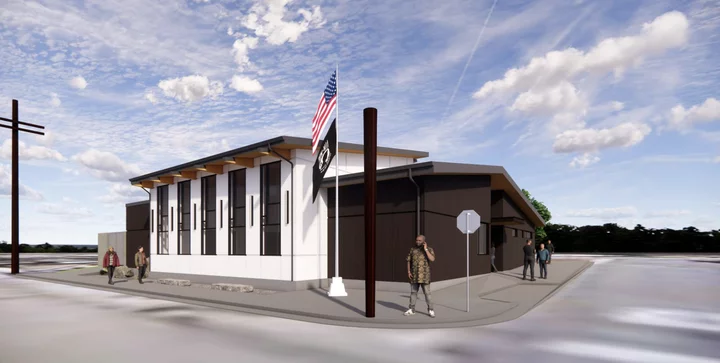
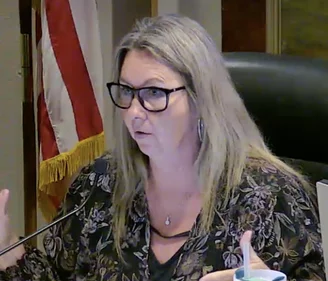
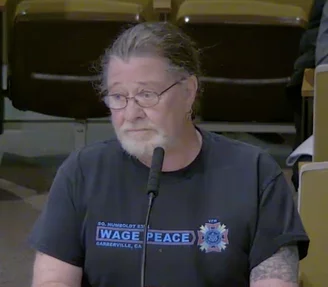

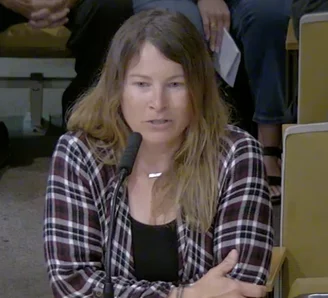
CLICK TO MANAGE